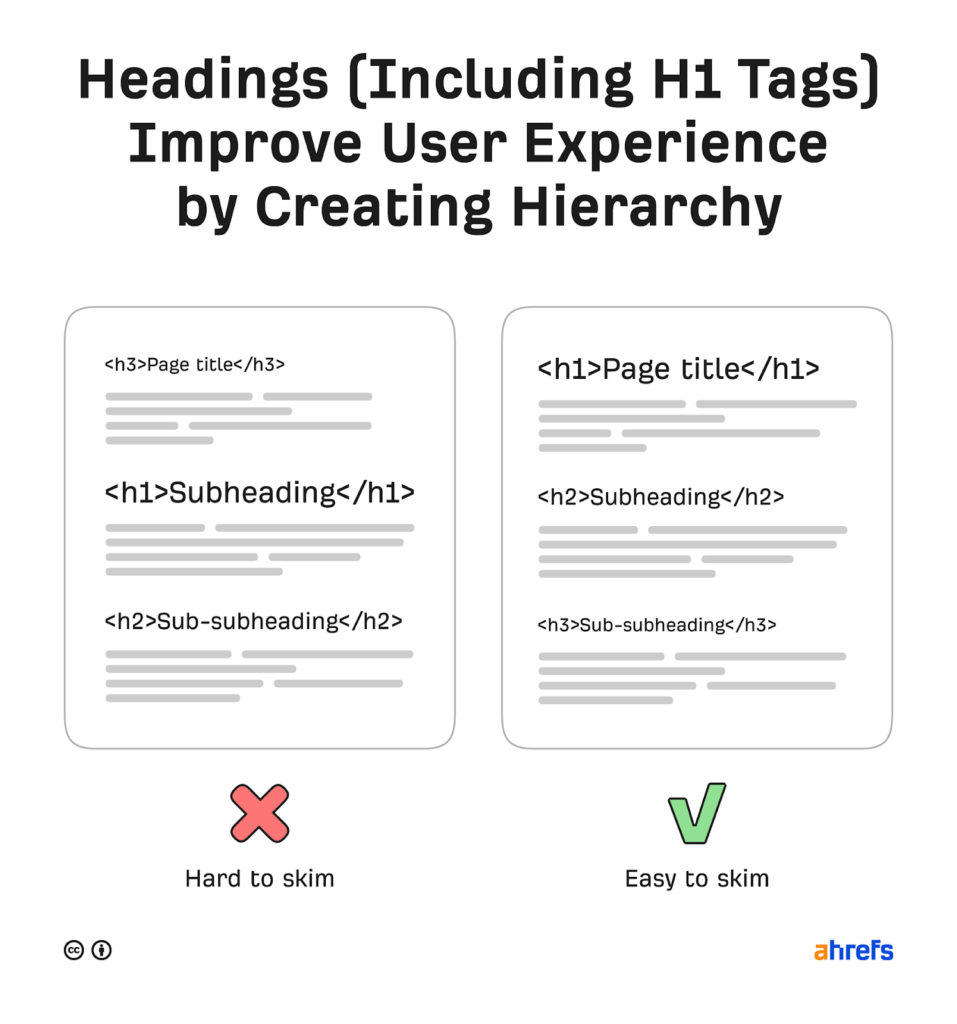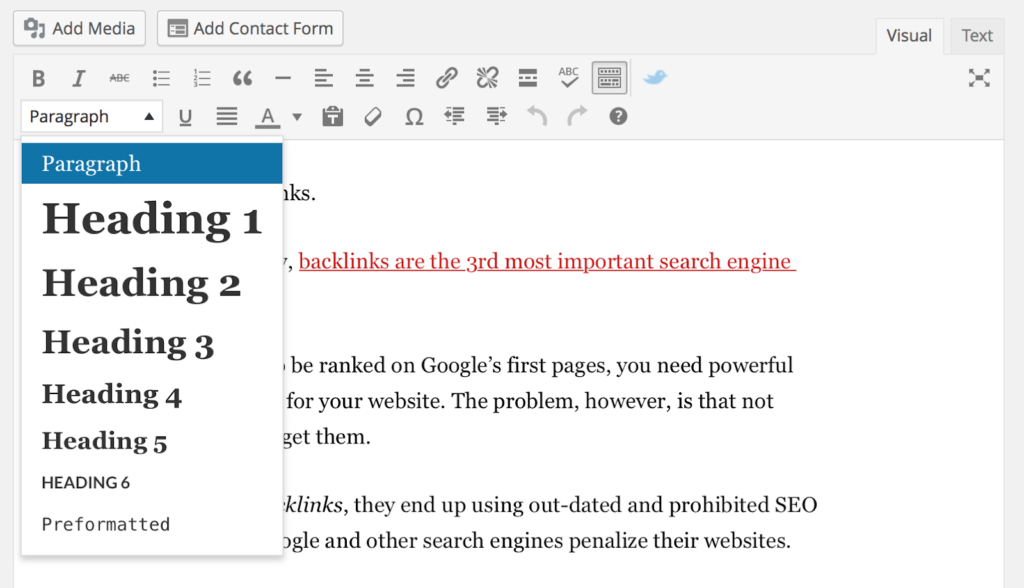
Heading tags, especially the H1 tag, are significant SEO players and are essential in ranking a particular webpage or website on search engine result pages (SERPs). H1 tags and other heading tags help separate headings and subheadings in the website, helping users identify a particular title and body content, further increasing the readability of the content. And H1 checkers help you check if they’re in place.

H1s not only improve the readability of content but also significantly improve the SEO of the website or a particular webpage. So, the H1 tag is a standard HTML tag that indicates the heading on your website or blog. There are, however, including the H1, six header tags available from H1 to H6; the H1 tag is used as a page title or headline that indicates the context of the website or webpage.
Now, let’s see how H1 tags impact your website’s SEO and why they and H1 checkers are important.
Why Are H1 Tags Important for SEO?
Headlines convey essential information, whether it’s in the newspaper or on the website.
Similarly, the H1 tags or headline of the website or a particular webpage convey essential information about the website or page that helps a user or a visitor to expect certain information from that website or webpage.

However, the users will only find this information on the search engine result page if the search engine ranks the particular website. And to rank the website on SERPs, the H1 tag plays a significant role as it helps search engines like Google and its bots to crawl webpages and learn more by analyzing the critical headings like H1 to know more about the website and rank accordingly.
However, many other factors significantly rank a website, but the H1 tag is important.
And what’s written in the H1 tag is as important as including the focused and long-tail keywords that help users find what they want in a website.
Using a keyword in an H1 tag helps you improve the SEO of that particular webpage, and overall, it improves the SEO of your website and enables you to rank on the SERPs.
However, excessive headers can have the opposite effect on what you try to achieve with them. So, the use of header tags and H1 tags should be limited on every webpage and website.
What is an H1 Tag Checker?
An H1 tag checker is a free or paid tool that helps you check the H1 tag’s availability on any particular website. For example, if you do not know how to code, log into the H1 tag checker tool, insert the URL, and hit check.
As H1 tags are an essential part of any website and webpage, users who do not know to code or don’t want to dive into it can use the H1 tag checker tool. However, the H1 tag checker helps users to identify the H1 tag available on the website and helps them improve it with the help of the sufficient and correct amount of potential keyword use. After all, it is all about the right keywords and a specific character limit to win at the H1 tag game.
The H1 tag checker is essential for those who do not know how to check an H1 on their website and those who are just getting started with SEO practices and want to check the H1 tags.
How To Use The H1 Tag Checker Tool
Using an H1 tag checker tool is easy.
- Simply visit the H1 tag checker tool. Upon seeing it, it will ask you to enter the webpage URL you want to check the H1 tags from.
- Enter the URL and hit check.
- After a while, once the process completes, you will get the result wherein you can see the numbers of H1 tags available on the webpage with their value, which means the content and keywords that have been used in making that H1 tag.
Various free and paid tools are available that efficiently check your H1 tags on your website and generate a detailed report on your H1 tags.
The following are the H1 tag checker tools you can use to check your website’s H1 tags.
Besides the mentioned H1 checkers, meta description checkers are also available that help you check the meta description and suggest the better one or your mistakes.
A Quick Summary
H1 tags help every digital marketer rank their website on SERPs. However, there are some tricks on how to make it more efficient and SEO-friendly that quickly help you rank higher on SERPs. Also, use the free tools to check the H1 tag and use it accordingly.

FAQs
Using the focused keyword in the H1 tag and limiting the text to 70 characters will significantly help you rank higher on SERPs.
The recommended number is one. However, you can use more than one H1 tag on your page.
The meta title and H1 for this post are very similar. The meta title uses slightly more search-friendly phrasing, while the H1 addresses the reader. If there’s no reason to vary the titles, make them identical or very close.
Latest Blogs
Learn how to rank on AI search engines like ChatGPT, Perplexity, and Gemini by optimizing your content for authority, structure, and relevance. Stay ahead in AI-driven search with this strategic guide.
Explore the best healthcare SEO services for your medical practice. Improve online visibility and effectively reach more patients in need of your services.
Discover top social media agencies specializing in banking solutions, enhancing financial services and driving engagement.
Get your hands on the latest news!
Similar Posts

SEO
5 mins read
Top 10 Agencies for Banking and Financial SEO Services Industry

SEO
4 mins read
Top 10 B2B Enterprise SEO Agency Options for Effective Digital Marketing

Artificial Intelligence
5 mins read